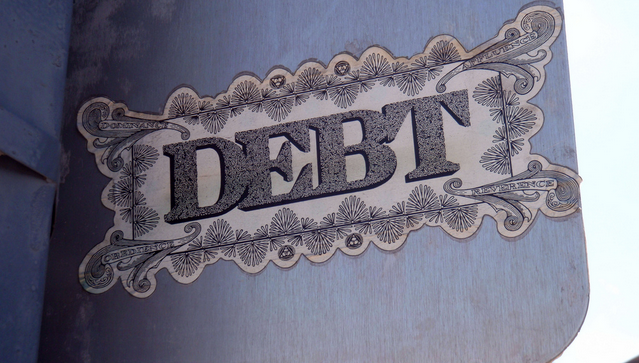California Senate Passes Bill Allowing Consumers To Fight Unfair Default Judgments
We recently told you how potentially millions of Americans are stuck with someone else’s debt because of the large number of default judgments in favor of debt collectors. Yesterday, lawmakers in California approved a bill aimed at giving consumers in that state some ability to fight back.
Default judgments in debt cases are problematic because the collectors who file these complaints sometimes have incomplete or inaccurate information and can end up suing the wrong person based on the belief that they are the debtor. So if a defendant doesn’t appear in court because they never knew they were even being sued, they can face a steep uphill battle to shed themselves of this judgment — especially if they don’t learn of the court ruling until years later.
Passage of Senate Bill 641, introduced by Sen. Bob Wieckowski, gives a consumer the ability fight back against abusive debt collection tactics by asking a court to set aside default judgments and hear the case on the merits within 180 days after the first actual notice of the lawsuit.
The protection would ensure that consumers can defend themselves in situations where they received no initial notice that they were being sued, through no fault of their own.
Under current law, if a case is over two years old, consumers have to get an attorney and file a lawsuit, which is too costly for low-income Californians.
“This is an important step forward to providing increased due process protections for California consumers,” Wieckowski said in a statement. “Legal services providers and other non-profit organizations across the state that work with low- and middle-income Californians are seeing an alarming number of debt collection cases where consumers are getting their wages garnished without ever getting a day in court.”
Of course, setting aside the default judgment doesn’t automatically void the plaintiff’s claim, it merely restarts the lawsuit, allowing the defendant to properly argue their case.
Consumer advocates have previously pointed out that hitting this reset button on the complaint restores a consumer’s right to defend herself and have her day in court – a day that was robbed of her the first time around.
“Debt buyers are in the best position to retain important documents related to service of process,” Suzanne Martindale, policy counsel with Consumers Union said last month. “It makes no sense at all to strip away a consumer’s right to defend herself simply because debt buyers may not have their paperwork in order.”
Wieckowski points out that the need for the law has never been greater. Just this week, the Consumer Financial Protection Bureau took action against the country’s two largest debt buyers for illegal collection practices.
The companies, Encore Capital Group and Portfolio Recovery Associates, allegedly threatened and deceived consumers and filed lawsuits against them without having the intent to prove many of the debts, winning the vast majority of the lawsuits by default when consumers failed to defend themselves.
In addition to passing SB 641, the Senate also approved a measure that would create a tiered-garnishment rate to lower the high percentage of income currently taken from low-income workers’ paychecks and to recognize local minimum wage ordinances.
Currently, the wage garnishment level is 25 percent, the maximum allowed under federal law.
“For the many Californians living paycheck to paycheck the loss of a job or a medical event can quickly send families spiraling into debt,” Wieckowski said. “These two bills will help people get out from under their debt and fight default judgments for debt they don’t owe or have already paid off.”
Want more consumer news? Visit our parent organization, Consumer Reports, for the latest on scams, recalls, and other consumer issues.


